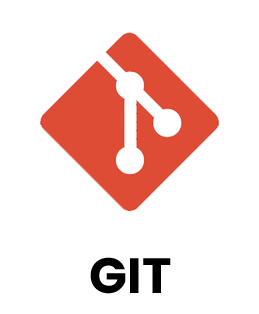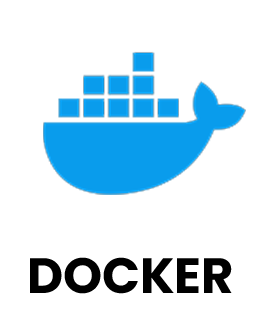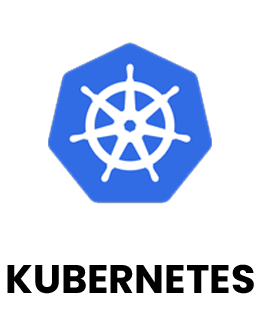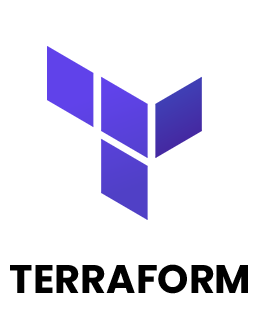ACTE Provides DevOps inclusive training. Live projects and simulations are equipped by the extensive practice training offered by the DevOps Course in Delhi. This extensive Devops course enabled our students to find employment in different MNCs. The trainers are specialized corporate specialists that offer a profound course of study. There are plenty of chances for industry workers to complete the DevOps Certification. In addition, we maintained a customizable timeframe of the DevOps course. DevOps training takes place on weekdays and weekends, from online classes to fast-track and one-to-one classroom training. The state-of-the-art technology in our modern laboratory helps students to take advantage of successful DevOps training.
Additional Info
What is DevOps?
DevOps (a portmanteau of “development” and “operations”) is the combination of practices and tools designed to extend an organization’s ability to deliver applications and services quicker than ancient computer code development processes. This speed allows organizations to serve their customers and vie a lot effectively within the market. In straightforward terms, DevOps is concerned with removing the barriers between historically siloed groups, development, and operations. Underneath a DevOps model, development and operations groups work across the complete computer code application life cycle, from development and check through readying to operations.
DevOps is the combination of cultural philosophies, practices, Associate in Nursing tools that will increase an organization’s ability to deliver applications and services at high velocity: evolving and up product at a quicker pace than organizations mistreatment ancient computer code development and infrastructure management processes. This speed allows organizations to serve their customers and vie a lot effectively within the market.
The word DevOps could be a combination of the event and operations of the terms, meant to represent a cooperative or shared approach to the tasks performed by a company's application development and IT operations groups. In its broadest, that means, DevOps could be a philosophy that promotes higher communication and collaboration between these groups. in a corporation.
In its most slender interpretation, DevOps describes the adoption of unvaried computer code development, automation, and programmable infrastructure reading and maintenance. The term additionally covers culture changes, like building trust and cohesion between developers and systems directors and orienting technology to business needs. DevOps will amend the computer code delivery chain, services, job roles, IT tools, and best practices.
While DevOps isn't a technology, DevOps environments usually have common methodologies. These embody the following :
continuous integration and continuous delivery or continuous reading (CI/CD) tools, with stress on task automation;
products that support DevOps adoption, as well as period watching and incident management systems, configuration management and collaboration platforms; and
cloud computing, microservices, and containers enforced at the same time with DevOps methodologies.
A DevOps approach is one amongst several techniques accustomed to executing IT that meet business wants. DevOps will be with Agile computer code development; IT service management frameworks, like ITIL; project management directives, like Lean and 6 Sigma; and different methods. Some IT professionals believe that the straightforward combination of Dev and Roman deity isn't enough, and therefore the term DevOps ought to expressly embody business (BizDevOps), security (DevSecOps), or different areas.
How does DevOps work?
DevOps may be a methodology meant to enhance work throughout the computer code development lifecycle. you'll be able to visualize a DevOps method as an associate degree infinite loop, comprising these steps: arrange, code, build, test, release, deploy, operate, monitor, and through feedback arrange, that resets the loop. Ideally, DevOps means the associate degree IT team writes computer code that completely meets user necessities, deploys with none wasted time, and runs optimally on the primary attempt. Organizations use a mixture of culture and technology to pursue this goal.
To align computer code to expectations, developers and stakeholders communicate concerning the project, and developers work on tiny updates that go live severally of every alternative. To avoid wait times, IT groups use CI/CD pipelines and alternative automation to maneuver code from one step of development and ready to a different. Groups review changes forthwith and might enforce policies to make sure releases meet standards.
It's easy to jot down computer code quickly; writing computer code that works is another story. To deploy smart code to production, DevOps adherents use containers or alternative strategies to form the computer code behave identical manner from development through testing and into production. They deploy changes severally in order that issues are traceable. groups suppose configuration management for consistent readying and hosting environments. issues they discover in live operations cause code enhancements, usually through an unimpeachable port-mortem investigation and continuous feedback channels.
Developers would possibly support the live computer code, which puts the encumbrance on them to deal with runtime concerns. IT operations directors could be concerned within the computer code style conferences, giving steerage on a way to use resources expeditiously and firmly. Anyone will contribute to unimpeachable post-mortems. The additional these specialists collaborate and share skills, the additional they'll foster a DevOps culture.
What problems does DevOps solve?
Each company faces its challenges, however, common issues embrace releases that take too long, a software system that does not meet expectations, and IT that limits business growth. Without wait times, manual processes, and drawn-out reviews, a DevOps project moves from necessities to measure software systems quicker. Shorter cycle times will keep necessities from shifting so the merchandise delivers what customers wish.
DevOps solves communication and priority issues between IT specializations. To create a viable software system, development groups should perceive the assembly atmosphere and take a look at their code in realistic conditions. a conventional structure puts development and operations groups in silos. This implies developers are glad once their code delivers practicality. And if the discharge breaks in production, it's up to the operations team to form the fixes.
With a DevOps culture, developers will not have the "It worked on my machine" response once a tangle arises. Changes extended to production are tiny and reversible. Plus, the full team understands the changes, therefore incident management is greatly simplified. With a quicker method from the plan to measure software systems, firms will exploit market opportunities. During this time, DevOps provides a competitive advantage for businesses.
Evolution of DevOps :
The idea of DevOps was then popularized with the book The Phoenix Project in 2013. The Phoenix Project uses a fictional narrative of parenthetically endemic issues and facilitates IT managers to perceive the ideas and edges of collaboration and shared technologies.
Early proponents of DevOps enclosed the subsequent people :
- Debois and collaborator Saint Andrew Clay Shafer;
- The Phoenix Project authors sequence Kim, Kevin Behr, and patron saint Spafford;
- Paul Hammond and John Allspaw, potent early adopters at Flickr;
- containerization advocate John Willis; and
- state of DevOps Report organizers, as well as Alanna Brown and Nicole Forsgren.
As DevOps became widespread, organizations formalized DevOps approaches. Retail merchant Target originated the DevOps Dojo coaching technique, as an example. Vendors touted DevOps-enabling capabilities in tools, from collaboration chatbots to CI/CD suites designed into cloud services. DevOps engineer emerged as an employment title.
DevOps continues to evolve, as AI surfaces to help in everything from code creation to incident management. AI for DevOps suggests that smarter automation and even shorter wait times, even seamless translations from business got to technological providing however many barriers stay before this becomes reality. While DevOps has achieved thought standing, not all adopters are full DevOps converts. Several trust a DevOps approach for revenue-generating IT comes, wherever they see a come back on investment within the leading-edge tooling and skills. For several internal IT services that are comparatively stable and mature, DevOps doesn't supply important edges.
Methodologies, Principles and Strategies :
DevOps is related to Agile software package development as a result of Agile practitioners promoting DevOps as the simplest way to increase the methodology into production. The approach has even been tagged a culture to the IT service management practices championed in ITIL. DevOps doesn't have a political candidate framework. To hone their methods, organizations ought to perceive the connected contexts of DevOps, Agile and water development, website responsibility engineering (SRE) and SysOps, and even the variations inside DevOps.
- DevOps vs. water development :
Water development contains a series of steps and gates in a very linear progression to production. Its phases are unit necessities, analysis, design, writing and implementation, testing, operation and readying, and maintenance. In water groups, development tests new code in Associate in Nursing isolated surroundings for quality assurance (QA) and -- if necessities area unit met -- releases the code to operations to be used in production. IT operations deploy multiple releases directly, with in-depth controls. Support is the operations' responsibility. Water approaches engender long waits between software package releases. As a result of development and operations groups working severally, developers aren't forever alert to operational roadblocks that stop code from operating as anticipated.
The DevOps model aligns development, QA, and IT operations efforts with fewer gates and a lot of continuous advancement. For instance, a number of the operations' team responsibilities shift left within the app delivery pipeline to the event team. IT operations give feedback for code enhancements. Instead of gated steps, DevOps depends on continuous development, continuous integration, continuous delivery, and continuous observation processes.
- DevOps vs. Agile development :
Agile could be a software package development approach outlined within the Agile pronunciation. Agile groups specialize in progressive and fast cycles of code creation and delivery, said as sprints. Every sprint iterates upon the last, which creates a high level of flexibility within the software package and adapts to ever-changing necessities. It's attainable for the first vision of a project to be lost through this cycle.
DevOps arose from Agile's success at up development speed once it became clear that disconnects between development and operations groups -- moreover as between IT and also the business facet of the organization -- considerably hindered the Agile software's delivery to users.
In Associate in Nursing Agile-only advancement, development, and operations groups have separate objectives and leadership. Once a company uses DevOps and Agile along, each development and operations groups manage code throughout the software package development lifecycle. Whereas Agile work is commonly formalized with a framework, like a start, DevOps doesn't have a framework.
- DevOps vs. SRE. :
Website responsibility engineering arose at the same time with Agile and DevOps. Started within the early 2000s at Google, it's primarily a programming- and automation-focused approach to the software package development lifecycle. Issues ought to be solved in a very manner that stops them from occurring once more. Memorization tasks ought to be reduced.
The SRE chest closely matches that for DevOps. Each discipline aims for continuous improvement. SRE and DevOps engineers looking to get rid of silos between development and operations. Whereas DevOps can also touch business stakeholders, SRE generally stays inside the compass of IT processes.
- DevOps vs. SysOps. :
SysOps generally denotes Associate in Nursing IT administrator or IT team managing production readying and support for an oversized, distributed application, like a SaaS product. Unlike DevOps adopters, SysOps groups ought to be versed in cloud computing and automation, moreover as alternative technologies that modify applications to perform well at an oversized scale. SysOps groups troubleshoot IT outages and incidents, monitor for performance issues, enforce security rules and optimize operations.
They specialize in high handiness, fault tolerance, security, and performance a bit like alternative IT admins. Whereas SysOps professionals are a unit possible to use some development tools and perceive development processes, their work isn't as intermeshed with development as in a very DevOps job. However, SysOps roles will exist inside DevOps and SRE organizations.
- variation on DevOps. :
Some organizations broaden the scope of DevOps to incorporate alternative departments. In DevSecOps, security coming up with scans, testing, and reviews occur unendingly throughout the DevOps loop. BizDevOps focuses on connecting executives, application house owners, and alternative business stakeholders to the technical team that develops tests, and supports the software package. Whereas a lot of collaboration is arguably forever higher than less, these collaborators should share effective, timely, and precise input.
Another variation on DevOps, or a unique faction of a similar movement, is GitOps. Thus named attributable to its specialization in the named repository and version management technology, GitOps espouses declarative supply management over application and infrastructure code. Everything regarding the software package -- from feature necessities to the readying surroundings comes from one supply of truth.
Benefits of DevOps :
1. Speed :
DevOps practices allow you to move at the rate you wish to pioneer quicker, adapt to dynamical markets higher, and become additional economical at driving business results.
2. Rapid delivery :
Once you increase the pace of releases, you'll improve your product quicker and build a competitive advantage.
3. Reliability :
DevOps practices like continuous integration associated with continuous delivery will ensure the quality of application updates and infrastructure changes therefore you'll faithfully deliver at an additional speedy pace while maintaining optimum expertise for end-users.
4. Improved collaboration :
Underneath a DevOps model, developers and operations groups collaborate closely, share responsibilities, and mix their workflows. This reduces inefficiencies and saves time.
5. Security :
You'll adopt a DevOps model while not sacrificing security by exploiting machine-controlled, integrated security testing tools.
Challenges of DevOps :
- organizational and IT division changes, together with new skills and job roles;
- expensive tools and platforms, together with coaching and support to use them effectively;
- development and IT tool proliferation;
- unnecessary, fragile, or unsafe automation;
- scaling DevOps across multiple comes and teams;
- riskier preparation thanks to a fail-fast mentality and job generalization vs. specialization;
- regulatory compliance, particularly once role separation is required; and
- new bottlenecks
How to find the right DevOps tools?
DevOps practices trusting effective tools to assist groups quickly and dependably deploy and introduce for his or her customers. These tools ought to automate manual tasks, facilitate groups to manage advanced environments at scale and keep engineers on top of things at the fast pace that's DevOps.
The DevOps workflow consists of phases :
- Planning succeeding iteration of the product’s development
- Building the code
- Testing and deploying to the assembly setting
- Delivering product updates
- Monitoring and work software package performance
- Gathering client feedback
1. Planning :
Schedule coming up with and task trailing tools are required to make sure the DevOps team is aware of what tasks are at hand, what's presently being done, and whether or not there are any risks of falling overdue. Tools like Confluence and Jira facilitate DevOps groups to accomplish a seamless and economical project management cycle and guarantee timely product delivery.
2. Build and delivery :
Developers want fast readying of development and testing environments and can’t wait long for repairs once one thing goes wrong. Stevedore containerization ensures consistency across multiple developments and unharness cycles and provides repeatable development, build, test, and production environments. alternative fashionable tools for this part embrace Kubernetes, Terraform, Chef, Ansible, and Puppet.
3. Testing :
Search for tools like Jenkins, CircleCI, and GitLab CI, that facilitate minimizing the time and energy dedicated to testing while not compromising the code quality or user expertise.
4. Software observation and work :
Once the software package is emotional to production, it should be monitored to make sure of stable performance and inflated client satisfaction. This stage conjointly involves performance analysis and work, raising sensible alerts on numerous problems, gathering client feedback, and so on. Tools for acting these tasks embrace Titan, Grafana, Elastic (ELK) Stack, Splunk, and sport Logic.








































